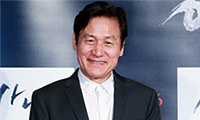▶ Los Angeles Survival (29)
Copyright 2001
Editor? note This column by Korean American writer Ellen Thun is about her experience of growing up in Los Angeles before World War II. The story sheds light on a life of first-wave Korean immigrants in the early part of 1900s. Writer Thun was born in Riverside and went to grammar school in Riverside and high school and college in Los Angeles, and worked as a proofreader at the Times-Mirror Press, Los Angeles.
Mrs. Lim was not concerned with mainstream, USA. She narrowed her concern wanting to be with her husband Cheun Kee Lim. He left in 1903 to join Ahn Chang Ho in San Francisco, who advised his friends to come alone. Wives and children would burden them down so they would be unable to devote themselves studying American political, economic and scientific thought. Nor would they learn the English language quickly enough to pursue their goals, thus delaying their early return to their homeland.
However, he himself married and took his new bride to the new world. Their leader? action was in Mrs. Lim? mind as she made up hers. At the time her husband went away, she had not paid heed to his leaving without her. She was busy with daughter Marjorie, born in 1901, who was followed by the birth of their son before Mr. Lim decided to go to America alone. His reasoning being sound: his wife and children would be under his mother? roof and care. Where could they be safer?
When the baby was old enough to have smallpox inoculation, her mother-in-law, the boy? grandmother, refused permission for this Western preventive. The boy caught the disease and did not survive the illness. What she first considered eccentric in the old woman by the refusal, the death of her baby changed her thinking. She made up her mind: She would go to America. There certainly were no greater dangers there than the old woman? ignorance here.
Mrs. Lim went to work. She wove cotton cloth, sold it and earned the fare money. When she reached her husband, Ahn sent him and his family to Pachapa camp in Riverside, where Mr. Lim was to pick oranges with other Korean men. Mrs. Ahn already was there. About her, Marjorie said she was like a second mother to her, and Philip who was younger than she was like a brother. It was a good beginning. Only Mr. Lim was unlucky. He fell from the ladder until he learned to balance himself while picking the oranges that were meant to fall into the long sack that hung from his shoulders.
Mrs. Lim reminded Marjorie the Lims were "jinzza"(genuine) and prominent in their hometown and therefore were not laboring people. Marjorie told the other children her father was "chinsa" (scholar) and too grand to be picking fruit. She added another story during the interview about her experiences. (I interviewed her on the telephone in March 1976. It was a two-hour talk, much too hasty for an in-depth report. But as she said she was too busy and could only give me this phone-time, this material was obtained.)
The story related was of her grandmother, whom she did not remember, except the old lady was domineering and caused her mother distress. This account her mother repeated often to her when they came to California. Marjorie liked the incident described about the deaf-and-dumb servant who was hired to do simple chores in exchange for a place to sleep and what was described as a "servant? meal". The meal was a dish of millet, oat and other grains.
The deaf-mute let the mistress know immediately he did not like what was in the dish. First he showed her the dish with the mix, then used his fingers pointing out what he did want. Next he led her to the animal yard, pointed to the chickens, pigs, ducks, etc., and poured the contents of the dish into the feed trough. He looked at his mistress as if asking, did she understand? She understood, but he continued eating the servant? meal, except when she felt disposed to be generous and served him leftovers.
After telling the story, Marjorie said the grandmother wasn? ignorant, perhaps strong-minded. As for remembering Korean things, she recalled the children slept on the floor in one room and were happy.
From Pachapa camp the Lims moved to Upland to manage their own labor camp. It was about 1912. John, Jason and Peter were born at Pachapa, sisters Hazel and Helen in Upland, with the youngest boy Richard. Marjorie was designated caretaker of the children. She said one time Philip Ahn complained he could not satisfy his mother, helping care for his brothers and sisters. She told him she had never been able to please her mother try as she might: "That? how mothers are," she assured Philip. She also attended school, helped in the kitchen, and was paid 25 cents a week.
The camp was financially a success. It was located in the Pomona-Claremont-Upland area that had agricultural work the year round, including oranges, walnuts, and field work. Their camp served about 40 workers.
At the end of a season, the workers were generous with the children, giving them money gifts that their mother banked, and over the years the sum added up. They were not told how much had been given them. Only that when the Lims joined in the rice growing project with other Korean National Association members, their money was invested and lost when the rice crop was ruined by an early September rain. Unlike herself, Mrs. Lim moved the family into Upland and into a fine house on Washington Street, a white neighborhood. Marjorie liked the change, but Hazel telling about her feelings at the time said she lost the freedom she enjoyed in the countryside. In town her mother kept track of the children, what they did, where they went when they were not in school. Also, she said the reason the move came about was when Marjorie began to "bloom" and the workers ogled her openly as she served meals in the dining room. After that her mother kept Marjorie in the kitchen, even having her eat meals there with her. The joys of a mother with pretty daughters! How do they manage? Well, Mrs. Lim did very well after the rice venture ended disastrously, and the one asset Mr. Lim had was the 7-passenger Chandler sedan he bought to move the family to Willows. The automobile again served them, it took them from the northern part of California down to Los Angeles, eventually.
The parents worked their way south. First in Hayward where they set up a small labor camp. It was here that one of the boys had tonsilitis and the doctor in town suggested, for one price, he would operate on the three boys. And he would come out to the camp so the boys would not be disturbed after the removal. John and Peter had no difficulty from the removal, but Jason began to bleed and hemorrhaged. The bleeding could not be stopped and Jason died. This was the second son Mrs. Lim lost. She was to lose another son, her oldest, but not because of physical reasons. John was a brilliant student in high school, editor of the school paper, class president at graduation. And he wanted to be a doctor. The Lims had come to Los Angeles and owned a papa-mama store and paying for their son? medical training was a certainty.
The summer following graduation John was free to relax and have a summertime of fun with his friends. He met a young girl he introduced to his parents, they were engaged to be married. Mrs. Lim usually made decisions for the children? welfare, this time it was Mr. Lim speaking authoritatively: No marriage, or commitment to one, before medical school, laying down the law, otherwise there would be no money for his education. John broke with the young girl and went to medical college and then settled in a small Pennsylvania town to practice in. The rift between his father was never fully healed. John married an American woman there, and had a thriving practice in an area that had been considered rural and grew into a thriving urban sprawl. He was honored in his senior years for his part in the development of the region and received an award from the state for his long community service. Hazel having to write a senior paper for her graduation at Wisconsin School of Journalism chose to use his hometown as her subject. She did an excellent piece of work. She graduated magna cum laude, a Phi Beta Kappa key, and other scholastic honors. Children of immigrants, both gracefully entered Mainstream, USA.
However, Marjorie was the first to be a Mainstream, USA winner among the Lims and she was born in Korea and was not eligible for citizenship until the mid 1960s. Also, she was not an academic person. But sailed ahead into the mainstream, never doubting her right to do so. When I called her for an interview she brushed me off with "I am very busy going out with American friends. I have a Cadillac now and on the go and never stay home."
Home for Marjorie was the Richard Neutra designed house overlooking Silver Lake, a city reservoir, but a choice real estate site. She lived alone, her husband Arthur Park having died and a daughter with Downs syndrome passed away at age 20. Only her son, a doctor in the San Francisco Bay Area, was living. She married Arthur Park, a designer for a major linoleum manufactuer whose logo was a household fixture. Their floor covering lay in kitchens over America, also bathrooms and playrooms. His mother was Hannah Park of Kyungcho, and missionaries like Horace Underwood and Henry Appenzeller visited her family who were Christians.
Hannah Park came to the United States with her son and saw him through art schools, to become the successful designer he was. Marjorie and Arthur met when she attended prestigious Juilliards in New York. She related how she begged her father for a piano when she was in school. After much pleading, he gave in and said she must promise to practice everyday. A piano was not a small furniture investment. If she failed, he would sell the piano. That she was accepted by Juilliards made her feel she kept her promise. She liked music but she preferred to be Mrs. Arthur Park. But Mr. Lim? investment in the piano was not lost. The piano was used by the younger Lims, who added the saxophone to their musical repertoire, and provided the "orchestra" for Korean programs, especially at parties and dances.
Marjorie was given a big wedding by her parents, and the newly weds moved away. In mid-1930 Marjorie came home for visit, bringing her two children. Arthur remained at work. Then he and his mother came to Los Angeles. He had taken the art directorship of Forest Lawn Memorial Cemetery. He and his crew of artists turned Forest Lawn into a Los Angeles showpiece: a museum of old masterpieces in replica. One of the artists who worked with him was Chooh Ilyup, a Korean known for his copying Old Masters. He was married to an American named Patricia Downing, one of the "lost generations" of Americans in Paris after World War I. When World War II erupted, she came home and married Chooh. The two were in Marjorie? circle of American friends where seances were held, table-rapping parties were engaged in (a few of the guests were Caltech scientists too), all in search of the New Age. What Marjorie made of these meetings she did not say. She was an imperturable soul and probably dismissed the shows, but not the guests who impressed her by their salaries. Rumor was Arthur Park was paid the princely sum of $50,000 a year! Korean society was in awe of Marjorie. Her mother was one of the oldtime leaders, dating back to the Pachapa camp era. But Marjorie led a group referred to as the Korean coalition and had their pictures snapped together for some Korean occasion that made the Los Angeles papers. It was about this time that Marjorie and Mrs. Ahn (Philip? mother) showed up in mink stoles sure symbols of Mainstream, USA. Also, this same group invited California governor-candidate Ronald Reagan and his wife to speak at a meeting. They came, spoke and Ronald Reagan became the next governor.
What interested me about Marjorie was that she never worked like the rest of the Koreans. Yes, she worked in the sense of cooperating with her parents and her siblings. But she was never in need, and the rest of us were always in need lacking decent housing, meals at times, shoes or clothing so attendance at school was difficult. Such things are considered basic to growing up or a rounded personality; not neurotic for instance, with obsessions, compulsive actions, and other minor maladjustments to living the good life with which Mainstream, USA beckoned alluringly. No, Marjorie had good parents and it was about them I started to write, then Marjorie? appearance among the notes sprung at me, and this is the story that got typed. Nothing spectacular to report. A good life, a happy life, a long life. Does a person want more?
스마터리빙
more [ 건강]
[ 건강]이제 혈관 건강도 챙기자!
[현대해운]우리 눈에 보이지 않기 때문에 혈관 건강을 챙기는 것은 결코 쉽지 않은데요. 여러분은 혈관 건강을 유지하기 위해 어떤 노력을 하시나요?
 [ 건강]
[ 건강]내 몸이 건강해지는 과일궁합
 [ 라이프]
[ 라이프]벌레야 물럿거라! 천연 해충제 만들기
 [ 건강]
[ 건강]혈압 낮추는데 좋은 식품
[현대해운]혈관 건강은 주로 노화가 진행되면서 지켜야 할 문제라고 인식되어 왔습니다. 최근 생활 패턴과 식생활의 변화로 혈관의 노화 진행이 빨라지고
사람·사람들
more많이 본 기사
- 폭설 속 산행 비극… 마운트 볼디서 3명 조난 사망
- “10년간 모든 이민 전면 금지?” 황당 주장
- 안성기, 1월 1일 생일 하루 앞두고 심정지 상태 병원 이송..쏟아지는 응원
- LA 북쪽 테혼 카지노서 하룻새 10만불 ‘연속 잭팟’
- ‘故장제원 아들’ 노엘 “구치소서 58kg→95kg” 모습 보니
- 가주 판매 간 소고기 ‘이콜라이’ 오염
- [연말 기획] 한국계 혼혈들 두각… 각 분야에서 ‘맹활약’
- [알림] 오늘 신년특집 발행, 연방 공휴일인 새해 1월1일자 신문은 발행되지 않습니다.
- 한국팀 뛸 곳인데… 강력범죄 ‘충격’
- ‘아듀~ 2025!’… 희망찬 새해로
- 신년 연휴 폭풍우… 비 3인치 온다
- 전남대 신년회
- ‘백두산 호랑이’ 대가족 포착… “매우 희귀한 일”
- 지방세 공제한도 1만→4만달러로 상향
- 원·달러 환율… 연평균 기준 ‘역대최고’ 마감
- ‘헤비급 복서’ 조슈아 구사일생 동승자 2명 사망사고에도 경상
- “라면, 못 끊겠다면 ‘이거’라도 넣어라”
- [연말 화제] 올해도 찾아온 ‘얼굴 없는 천사’
- ‘케네디’가 또 비극 외손녀 희귀암 별세
- “치매에 치즈가 좋대서 맨날 먹었는데”… 고지방 주의
- 내년 1월부터 달라지는 MD 법안들
- 구리선 절도범 소행에 LA 교통 통신망 ‘먹통’
- “미군에 쫓기는 ‘유령선단’ 유조선, ‘러시아 국적’ 주장”
- 알고보니 ‘완전식품’인 고구마의 놀라운 효능
- 문소리, 아이유 이어 강하늘 엄마 된다..영화 ‘국제시장2’ 합류
- 메트로카드, 31년만에 역사 속으로
- 트럼프 이름 덧붙인 ‘케네디센터’ 공연 줄취소
- 한동훈 “가족이 尹부부 비판 글 올린… 2
- 단백질 늘리고 탄수화물 줄이고…영양소 적정 기준 개정
- 위너 송민호, 병역법 위반 혐의 불구속 기소
- 샴페인, 마지막 날과 첫날을 위하여
- 토트넘 열광 “양민혁 극적 반전, 귀중한 결승골 터뜨렸다”... “믿기지 않는다” 英 현지도 극찬
- 중국, 올해 신차판매 1위… 일본 ‘20년 아성’ 깼다
- 사실상 고객 1인당 1만원… “생색내기 보상으로 불신만 키워”
- [인터뷰-문경환 한인회장] “캔자스, 이민자들에 제2의 기회의 땅”
- [한인 은행장 신년사 통해 본 비전과 경영 목표] “끊임없는 변화와 혁신으로 안정적 성장 도모”
- 2025 워싱턴지역 10대 뉴스
- 뉴욕한인회 내분사태 악화일로… 법적분쟁으로 가나
- [LA 일원 새해맞이 명소는] “웰컴 2026”… 남가주 새해맞이 행사 풍성
- 트럼프 “베네수엘라 마약 싣는 항만 타격”… 첫 지상 공격
- 멕시코, 새해부터 韓포함 FTA미체결국에 관세…최대 50%
- “교실 아날로그 시계 못읽어요”
- 임영웅, 2025년에도 빛난 ‘히어로’..음악·예능·공연 모두 잡았다
- [조지 F. 윌 칼럼] 저무는 2025년에 안도의 한숨
- 이란, 트럼프-네타냐후 회담 직후 “당신들은 우리 못 꺾소”
- “경기 둔화·샤핑패턴 변화 파고 못 넘어”
- 캘리포니아 ‘억만장자세’ 추진에 빅테… 1
- 우크라 ‘푸틴 관저 공격설’에 종전 기대감 찬물
- SI “김하성 영입은 A-” 수비력 유지·공격력 향상
- 케이스쉴러 주택가격지수 상승
1/5지식톡

-
 미 육군 사관학교 West Poin…
0
미 육군 사관학교 West Poin…
0https://youtu.be/SxD8cEhNV6Q연락처:wpkapca@gmail.comJohn Choi: 714-716-6414West Point 합격증을 받으셨나요?미 육군사관학교 West Point 학부모 모…
-
 ☝️해외에서도 가능한 한국어 선생님…
0
☝️해외에서도 가능한 한국어 선생님…
0이 영상 하나면 충분합니다!♥️상담신청문의♥️☝️ 문의 폭주로 '선착순 상담'만 진행합니다.☎️ : 02-6213-9094✨카카오톡ID : @GOODEDU77 (@골뱅이 꼭 붙여주셔야합니다…
-
 테슬라 자동차 시트커버 장착
0
테슬라 자동차 시트커버 장착
0테슬라 시트커버, 사놓고 아직 못 씌우셨죠?장착이 생각보다 쉽지 않습니다.20년 경력 전문가에게 맡기세요 — 깔끔하고 딱 맞게 장착해드립니다!장착비용:앞좌석: $40뒷좌석: $60앞·뒷좌석 …
-
 식당용 부탄가스
0
식당용 부탄가스
0식당용 부탄가스 홀세일 합니다 로스앤젤레스 다운타운 픽업 가능 안녕 하세요?강아지 & 고양이 모든 애완동물 / 반려동물 식품 & 모든 애완동물/반려동물 관련 제품들 전문적으로 홀세일/취급하는 회사 입니다 100% …
-
 ACSL 국제 컴퓨터 과학 대회, …
0
ACSL 국제 컴퓨터 과학 대회, …
0웹사이트 : www.eduspot.co.kr 카카오톡 상담하기 : https://pf.kakao.com/_BEQWxb블로그 : https://blog.naver.com/eduspotmain안녕하세요, 에듀스팟입니다…
케이타운 1번가
오피니언
 정숙희 논설위원
정숙희 논설위원샴페인, 마지막 날과 첫날을 위하여
 조지 F·윌 워싱턴포스트 칼럼니스트
조지 F·윌 워싱턴포스트 칼럼니스트 [조지 F. 윌 칼럼] 저무는 2025년에 안도의 한숨
 김동찬 시민참여센터 대표
김동찬 시민참여센터 대표 [미국은 지금] 책임 있는 자본 없으면 커뮤니티 미래도 없다
 성영라 수필가 미주문협 부이사장
성영라 수필가 미주문협 부이사장 [수요 에세이] 다시, 제자리로 돌아와서
 신경립 / 서울경제 논설위원
신경립 / 서울경제 논설위원 [만화경] 경영자의 ‘문제적’ 사과
 문태기 OC지국장
문태기 OC지국장 한인 정치력 업그레이드 기대
 민경훈 논설위원
민경훈 논설위원세계 역사를 바꾼 동물
 박홍용 경제부 차장
박홍용 경제부 차장 한인사회가 주목해야 할 새해 경제
 박영실 시인·수필가
박영실 시인·수필가 [화요칼럼] 피드백
1/3지사별 뉴스

지방세 공제한도 1만→4만달러로 상향
2026년 새해에도 뉴욕과 뉴저지 한인들의 일상에 크고 작은 영향을 미치는 다양한 규정과 법규가 새롭게 바뀌게 된다. 당장 1일부터 뉴욕시 최…
■ 사고- 한동대·뉴욕한인청소년센터 국제여름캠프

2025 워싱턴지역 10대 뉴스
다사다난했던 2025년이 하루만 남겨둔 채 역사의 저편으로 저물고 있다. 올해의 가장 큰 뉴스는 트럼프 2기 행정부 출범과 함께 몰아친 이민 …
내년 1월부터 달라지는 MD 법안들

셀폰 위치추적, 납치된 딸 살렸다… ‘부모 통제’ 기능 활용
스마트폰에서 자녀의 위치를 확인할 수 있는 ‘부모 통제(parent control)’ 위치 추적 기능의 도움으로 납치됐던 청소년들이 잇달아 구…
[새해부터 이렇게 달라진다] 최저임금 또 오르고… 유급 병가는 더 확대

오늘 하루 이 창 열지 않음 닫기 




















































.png)


댓글 안에 당신의 성숙함도 담아 주세요.
'오늘의 한마디'는 기사에 대하여 자신의 생각을 말하고 남의 생각을 들으며 서로 다양한 의견을 나누는 공간입니다. 그러나 간혹 불건전한 내용을 올리시는 분들이 계셔서 건전한 인터넷문화 정착을 위해 아래와 같은 운영원칙을 적용합니다.
자체 모니터링을 통해 아래에 해당하는 내용이 포함된 댓글이 발견되면 예고없이 삭제 조치를 하겠습니다.
불건전한 댓글을 올리거나, 이름에 비속어 및 상대방의 불쾌감을 주는 단어를 사용, 유명인 또는 특정 일반인을 사칭하는 경우 이용에 대한 차단 제재를 받을 수 있습니다. 차단될 경우, 일주일간 댓글을 달수 없게 됩니다.
명예훼손, 개인정보 유출, 욕설 등 법률에 위반되는 댓글은 관계 법령에 의거 민형사상 처벌을 받을 수 있으니 이용에 주의를 부탁드립니다.
Close
x